Announcements and Updates
Bookmark this page as your main entry point to the course website. That way, you’ll be sure to see any changes and other information I’ve posted here.
CURRENT ANNOUNCEMENTS
Grades for the course are posted on the grading page
26 December 2021
I have updated the grading page with the overall course grades based on everything I received via BlackBoard up through December 24.
The official grades will be posted to CUNYfirst on Monday night.
My heartfelt thanks again to all of you for a great semester under trying circumstances. Your hard work and enthusiasm made exploring antiquity gratifying and rewarding for me and for your fellow students. I hope you got a lot out of it, and remember you can always come to me with questions or news about the ancient world. I hope to see you in another ancient history class, and, either way, that your new year is safe, healthy, and rewarding. Good luck!
ARCHIVE
Final Exam grades and markups
22 December 2021
The grades and markups for the final exams are posted.
If you have not yet submitted an assignment, or if you have reversible deductions, please make sure to upload to BlackBoard no later than Friday, Dec. 24.
Essay #3 grades and markups
20 December 2021
The grades and markups for Essay #3 are posted.
If you have not yet submitted your essays, or if you have reversible deductions, please make sure to upload to BlackBoard no later than Friday, Dec. 24.
Exams and Papers Received
18 December 2021
The grading page has been updated to show all exams and papers I have received via BlackBoard. I will be working hard over the next few days to clear all of the remaining grading and will update you as assignment and exam grades are posted.
Please take note of any written assignments I am still missing from you, as well as any reversible deductions. The absolute deadline for all late papers and reversible deduction resubmissions is Friday, December 24. Remember that incompletes will not be granted except where mutually agreed in advance of the last deadline owing to extenuating circumstances.
Final Exam Posted
11 December 2021
The final exam questions have been posted on the Final Exam page. Please watch the video for instructions. Your responses must be uploaded to BlackBoard by Thursday, December 16. Good luck!
Clouds essay grades and markups posted
8 December 2021
The grades and markups for the Clouds essay are posted on the grading page. I was pretty impressed with the essays I received, and am definitely looking forward to your images essays and final exams.
Reversible deductions. Some of you may find that you received “reversible deductions” for issues relating to formatting and citations. The good news is, those are points that you can get back. Check the cover page of your markup to see if there are any hand-written points taken off next to the reversible deductions. If there are, I made notes on the cover sheet or in the essay about the issue, and included a handout with the requirements.
Please resubmit your essay to BlackBoard with those problems fixed, and I’ll be in a position to reverse those deductions. Only reversible deductions can be reversed, so don’t resubmit for anything other than reversible deductions.
Missing essays. If you have not submitted your Clouds essay (or your Gilgamesh essay), I strongly advise you to do so even though it is late. The lateness penalty is capped at 30 points maximum, and submitting an essay and getting a reduced grade is much, much better than a zero on the assignment for your overall course grade.
Welcome to Week 14!
6 December 2021
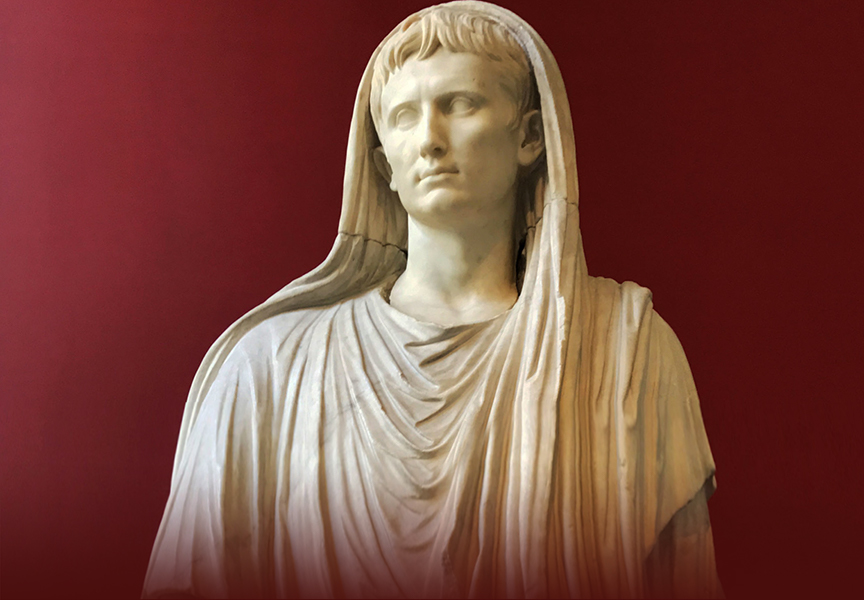
This week we’re discussing the principate. This is one-man rule by Augustus and his successors, so why do the Romans tolerate this if they hate kings so much? What do you think makes the principate continue to work even after rulers like Caligula and Nero? What do you think is good and bad for Rome and the empire about the principate?
Later on Christianity makes major headway through the empire despite persecution by several emperors, to the point where in the fourth century it is first officially protected and then made the official religion of the empire. What do you think most makes Christianity successful as a social force?
Looking forward to discussing all this with you on Thursday. This is our last chance to work together to make sense of the complex story of the ancient world, so come to class with questions and your own insights into what we’ve been exploring this semester. See you there!
Review Sheet Posted
4 December 2021
The final exam review sheet has been posted on the Final Exam page.
On this page you’ll find information about the final and review materials. This is also where the final exam itself will be posted. The exam will be posted on December 11, after our last class, and must be posted to BlackBoard no later than Thursday, December 16.
The review sheet is not designed to be a list of answers so much as questions you can use to guide you toward the areas you want to focus on in your review. As you read through the questions on the review sheet, those you have a sense of how you might answer are lower priority for review than those questions you’re not sure how you would answer; those you’d then want to go back and spend some time reviewing in your notes, the readings, the videos, quiz notes, and class discussions.
Also note that the terms are a useful way of finding concepts you need to go back and review, so I’d advise stepping through the terms at the end of each topic and making sure you have a sense of what they mean and why we’re studying them.
To prepare for the essays, I suggest that you focus on what you would consider to be four or five of the major themes of this course, and think about possible questions that relate to those topics across the periods and transitions we’ve explored. For the essay you’ll be asked to give three examples, so you can sketch out a question about a recurring topic in the course, your perspective on that question, and three similar or contrasting examples of that demonstrate that perspective.
Please take a look at the review sheet for details on the exam’s content and structure. The Overview and Instructions video sets out my requirements and expectations. Once you’ve read through the review sheet and seen the video, if you have any questions about the exam or about any of the topics covered in it, please don’t hesitate to come to me.
To get to the final exam page, go to the course website and click on “Final” in the navigation index, or follow the link to the “Final Exam page” post on the Announcements page.
Important upcoming dates
29 November 2021
Please make note of the following upcoming dates for this course:
- Saturday, December 4 — Final exam review sheet posted on the Final Exam page.
- Thursday, December 9 — Last class meeting. Essay #3 due.
- Saturday, December 11 — Final exam posted on the Final Exam page.
- Thursday, December 16 — Final exam responses must be posted to BlackBoard no later than this date. No late exams will be accepted.
- Friday, December 24 — Absolute deadline for all late Gilgamesh, Clouds, and Images essays. No submissions will be accepted after this date.
- Monday, December 27 — Rosters posted to CUNYfirst.
Please note that, per the syllabus, I do not give incompletes unless the grounds for extending one are discussed and agreed between myself and the student prior to the final course deadline.
Reminder: The Images Essay is due Thursday, December 9
29 November 2021
Here are a few brief reminders about the Images essay, which is due very soon on Thursday, December 9.
Watch the video. Make sure to watch the overview video, since that tells you exactly what I am looking for. It’s on the Images Essay page.
Thesis statement. Make sure you have an introduction with a thesis statement (your argument asserting your position on the question/problem being addressed) and a body that described and discusses three examples from the sources supporting your thesis statement. For models and explanations on how to do this, see “Writing a Position Paper” (a.k.a. “The Elephant Pamphlet”), which is on the Resources page.
Sources.
- For the museum option, if you can go to a museum in person and view the works directly that is what I strongly prefer, as this option is about your subjective reactions to experiencing the works you are writing about. Remember to choose two works that have the same subject (two little girls, two warriors, two Aphrodites) but from different times or places so you can talk about the implications of how the same concept was conveyed differently in different times or places.
- For the film option, you need to write about the agenda of the filmmakers and the agenda of the authors of the primary source and how each is using an ancient culture to impress their own beliefs (the filmmakers’ and the authors’) on the audience. If you’re not sure about the primary sources for the film you chose, make sure to come to me and we’ll discuss.
Requirements for all papers. You must adhere to the requirements for all papers (listed on the Essay Musts page). Not meeting the requirements for all papers will mean a lower grade.
Template. There is an MS Word template already set up with some of the formatting I require on the Resources page. If you use Word I strongly recommend making use of this template.
Late papers. As per the syllabus, late papers are marked down by ten points per class meeting, up to a cap of thirty points. Avoid this penalty and block out the time you need to prepare, write, and review your essay so that it can be submitted on time.
BlackBoard. All essays are uploaded to BlackBoard. Look for “Upload Assignments Here” in the left-hand menu. Your essay needs to be uploaded as a Word (preferred) or PDF file attachment, not pasted in as text submission. If you use a browser-based word processor, you’ll need to download or export to a Word document and upload that.
I’m happy to discuss any aspects of your sources or the essay, so please come to me if there’s anything you’re not sure about. I’m looking forward to hearing your interpretations of your chosen depictions of the ancient world!
Welcome to Week 13!
29 November 2021
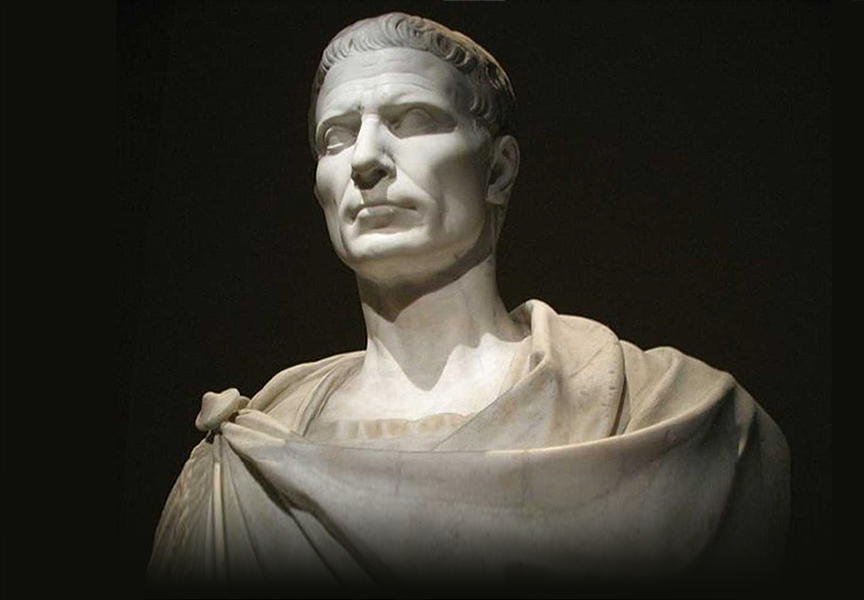
This week we’re talking about a series of massive turning points for the Roman Republic: the very different dictatorships of Sulla and Caesar, and the final collapse of the Republic, to be replaced by the one-man rule of Augustus.
What do you think Sulla was most interested in accomplishing? What is his legacy? What do we think of Pompey?
What was Caesar’s goal, for himself and for Rome, and why was he killed? All things considered, does he deserve praise as a great leader or censure as an ambitious seeker of power? What about Antony—he was the experienced lieutenant of Caesar, so why did he lose out to a kid who started with nothing but Caesar’s name?
What exactly is the principate? How is it that Rome, which was so intolerant of the idea of a king that the mere rumor he was angling to become king factored into Caesar’s assassination, accepted the one-man rule of Octavian, who came to be called Augustus? What made Augustus different from a king?
Looking forward to discussing all of this with you on Thursday. See you then!
Courses in Ancient History, Spring 2022
22 November
WINTER 2022 (Jan. 3-23)
Civilizations of the Ancient World
HIS 246-JA01 (46161)
Online-Synchronous – MoTuWeThFr 9:30AM-10:45AM
Prof. Mark Wilson
A survey of the Mediterranean world, beginning with the first humans and tracing the development of civilization from Mesopotamia and Egypt to ancient Greek City-States and the fall of Rome.
SPRING 2022 (Jan. 28-May 24)
Women in Antiquity
HIA 311-XT81 (50985)
HIA 750-XT81 (51065)
WST 311-H81 (58740)
In Person – Tu 6:00PM-8:40PM
Prof. Mark Wilson
Writing and research intensive
Examination of the image, role and status of women in ancient societies, Greece and Rome in particular, as seen from the important literary works of antiquity.
History of Rome
HIA 321-XH81 (51036)
HIA 721-XH81 (51052)
LEH 354-H05 (51013)
In Person – Th 6:00PM-8:40PM
Prof. Mark Wilson
Writing and research intensive
In this course we will explore the foundation and development of the Roman state, including the rise and decline of the Roman Republic and the establishment and fall of the Empire, with emphasis on its political, economic, social, and cultural achievements.
Classical Myth and Society
HIA 314- YM01 (51433)
HIA 714- YM01 (51444)
In Person – Fr 12:00PM-2:40PM
Prof. Marie Marianetti
Writing and research intensive
A comparison of the origins and development of classical mythology and heroic legend as religious beliefs, their relation to other mythologies, and their adaptation in literature and art from Hesiod and Homer through the present. A comparative analysis of Near Eastern and Nordic myth will be provided. Not open to students who have taken ACU 266.
Civilizations of the Ancient World
HIS 246-B301 (51210)
LEH 354-H01 (50982)
In Person – TuTh 9:30AM-10:45AM
Prof. Mark Wilson
A survey of the Mediterranean world, beginning with the first humans and tracing the development of civilization from Mesopotamia and Egypt to ancient Greek City-States and the fall of Rome.
Have a good break!
21 November 2021
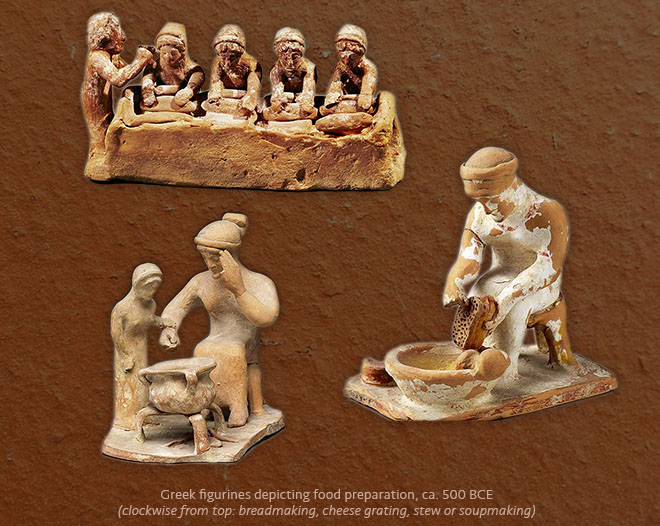
No class meeting this week. Enjoy your holiday and I will see you in Week 13!
Welcome to Week 12!
15 November 2021
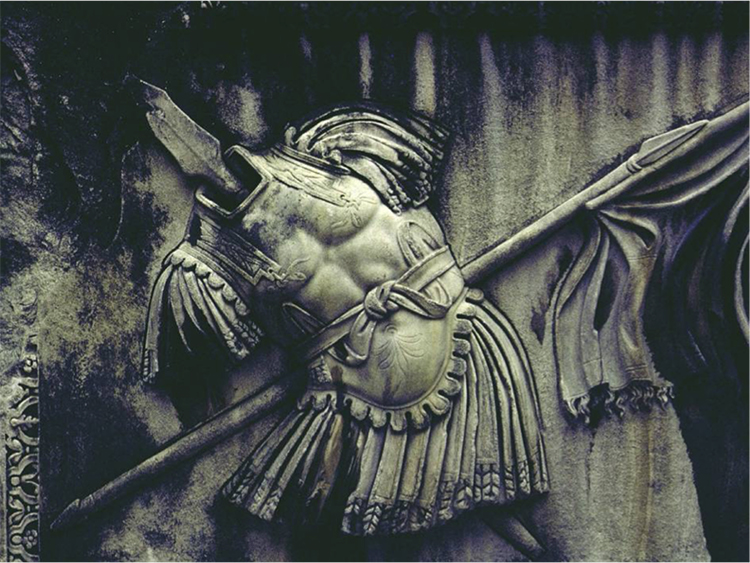
This week we’re talking about how and why the Romans shift toward military expansionism, and some of the repercussions that follow. Why do the Romans become militaristic and expansionist?
How do you think they see their rivalry with Carthage? Why do you think Hannibal is able to almost win—and why does he ultimately lose? Why does Rome seem to have such an off-hand approach to governing the territories it consumes or conquers?
Looking forward to discussing all this with you on Thursday. See you then!
Welcome to Week 11!
8 November 2021
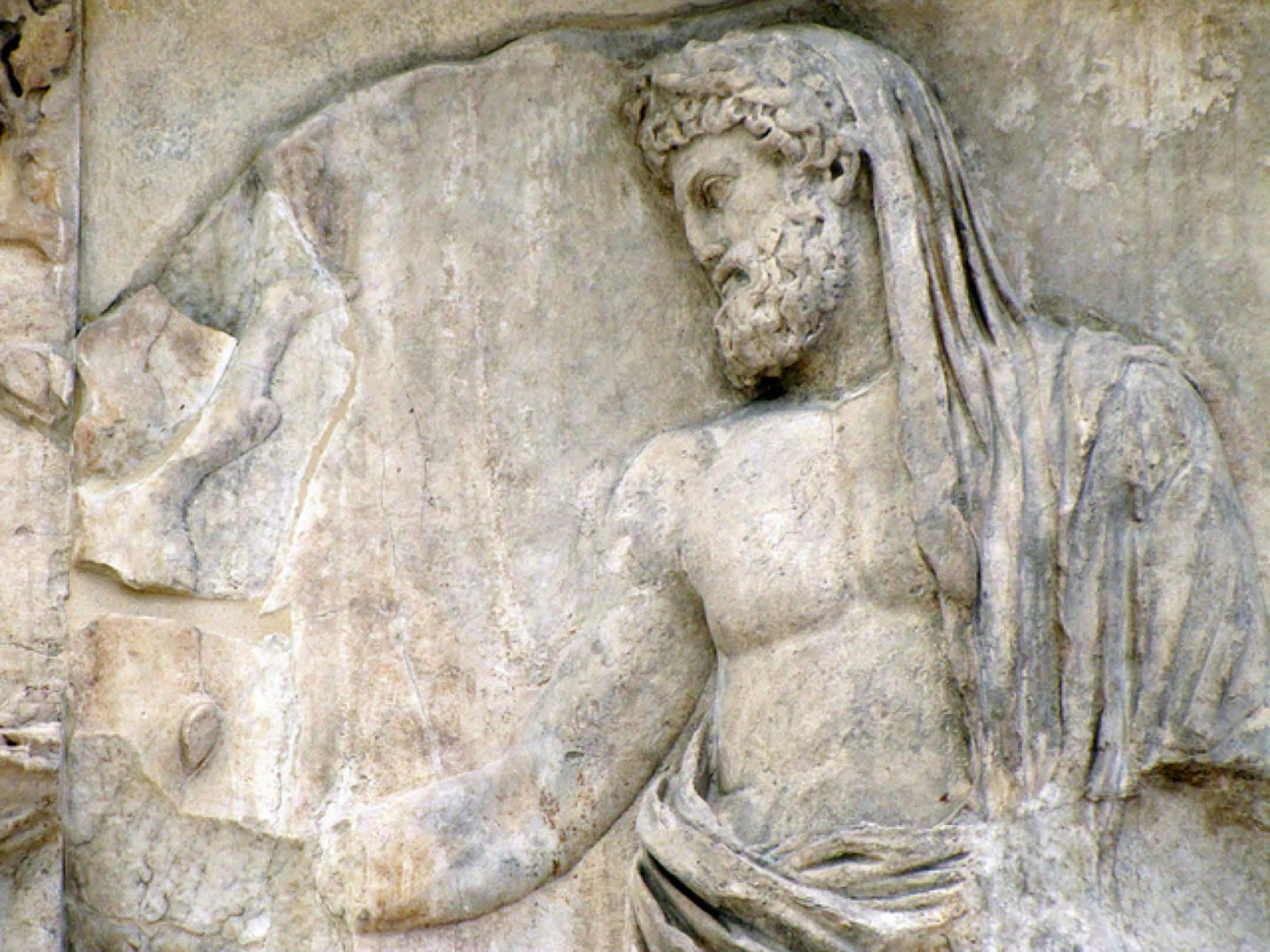
This week we’re starting our exploration of the Romans and their story. This is the beginning of the rise of the people that within a few centuries would dominate the entire Mediterranean, including most of the peoples we’ve studied.
At first Rome starts out as a city-state within the city-state culture of Latium with its own priest-king, just like the city-states in Sumer. But the Romans get fed up with the kings after a while and eject them from Rome. What do you think makes them turn against the kings? Is it just the actions of the kings, or does it go deeper? Why do you think the legends about the fall of the kings focus so much on the Rape of Lucretia as the thing that turns the Romans against the kings? What does the story of that rape signify to them?
The Romans replace the kings with a Republic. What stands out to you as the defining characteristics of the Republic? What does this idea mean to the Romans? The early history of the Republic involves an ongoing conflict between the patricians (families that control the priesthoods) and the plebeians (all other families of any class). Where does this conflict come from? Why are the priest-families so important to the Roman political system?
Looking forward to discussing all this with you on Thursday. See you there!
Welcome to Week 10!
1 November 2021
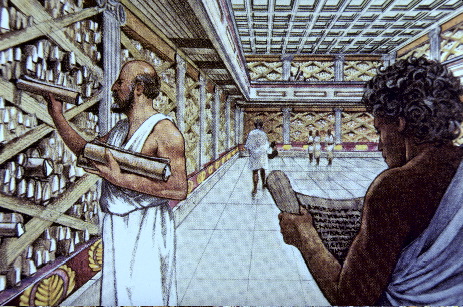
This week we’re talking about the aftermath of the Peloponnesian War.
More wars between the Greeks opened them up to invasion by Macedon and the famous conquests of Alexander the Great. Why do you think the Greeks couldn’t maintain any real peace in during this era, even when danger loomed from the north? What were they really fighting about?
A big part of this story are the two Macedonian kings, Philip and Alexander. What do you think was most instrumental in Philip being able to take over Greece? Was his son, Alexander, really that “great”? Was his conquest a failure because it didn’t remain unified? What are Alexander’s legacies for the world?
The other thing I really wanted to do with you folks this week is hash out what you guys think of Clouds now that we’re finishing it. There are some very striking scenes toward the end. What was most shocking or impactful for you—the debate where Unjust Argument wins (and: why does he win??); Pheidippides attacking his father; or Strepsiades abandoning rational discourse and taking up a torch?
What is this play about? What is Aristophanes telling us by having Strepsiades twist around so much? What do you think the play is telling us about classical Athens beyond what Aristophanes intended?
Looking forward to discussing all this with you on Thursday. See you there!
Note and reminders about the Clouds essay
27 October 2021
Here are a few reminders on the Clouds essay, which is due on Thursday, Nov. 18. Mostly this a repeat of what I have said before, but please read it anyway. Once again, the starting point I’d like you to bear in mind in that this essay is about making an argument and supporting that argument with evidence—in this case, three specific moments from Clouds that demonstrate an illustrate the argument you are making in the essay about what Clouds tells us about fifth-century Athens.
Comparing two works. Regarding Clouds, it’s important to bear in mind that this essay introduces a new wrinkle not present for the Gilgamesh essay: you need to compare Clouds to another ancient Greek work. Which one depends on which prompt you are answering—make sure to watch the Clouds essay overview video for my discussion of this aspect of the assignment. The essay overview video is very important this time. Watch the essay overview video, is what I’m saying. I would also suggest that you watch the overview video. This also means that you need to carve out time to read the other work as well as to plan and write the essay. Email me anytime if you want to discuss how to approach the essay.
The thing that similar is that for the Clouds essay you don’t need anything else but the two primary sources. Your essay should focus on three moments from Clouds, and compare each of those moments with a corresponding moment from the other work. More on that in the overview video.
Introduction. In your introduction, make sure you have a clear thesis statement—what you intend to show in the paper. Try to develop a concrete, specific thesis statement that lines up with and responds directly to one of the prompts. You don’t need to include evidence in your introduction; ideally all you need is to set up the issue you are addressing, what the possible sides are, and your thesis. I talk about this a bit in the Overview Video for the essay, and more generally in the Elephant Pamphlet (see the Resources page).
The body of the essay. In the main body of your essay, focus on three specific moments from Clouds that support your thesis. Describe the moment in a paragraph and then spend another paragraph talking about how that moment serves as an example of your overall argument—what you are trying to prove about what Clouds tells us.
Evidence and cites. Major rule of thumb for writing about history (and for academic work in general, but especially history): All assertions must be supported by evidence, and all evidence must be cited. When you describe events from Clouds and the other work (whether it’s in quotes, a paraphrase, or just describing specific ideas present in the story), you need to provide a citation—a footnote or parenthetical cite that gives your source (the book version of Clouds and the other work you are using) plus a page number. You also need a bibliography listing the versions used of both works. See the citations handout linked on the Resources page. Citations and bibliographies are also discussed more fully in the Elephant Pamphlet.
Requirements for all papers. Make sure to fully review the requirements for all papers (on the Essay Musts page of the course website) before completing and uploading your essay. Also review the prompt for the Essay you’ve chosen to make sure you answered what it’s looking for.
Any questions, let me know!
Welcome to Week 9!
25 October 2021

A big week this week, as we’re covering both the Persian invasions and the big war between the Greeks, the Peloponnesian War.
The Persian Wars are a huge watershed for the Greeks. Even the battles of this war remembered forever—Marathon, Thermopylae, Salamis. Why do you think the Greeks are really able to defeat the vastly more powerful Persians? How do you think the war changes them? What was most remarkable to you about the Persian Wars?
With the Peloponnesian Wars, the Greeks are fighting each other in a massive, generation-long slog unlike anything the ancient war has seen. Why? Why are they fighting, and why does it last for decade after decade? What is this war really about? Can we blame a particular city for this? Why do you think it turns out the way it does?
Also, we see the middle section of Clouds, where the “Socrates” character gets weirder and weirder, and Strepsiades gets more and more confused. What do you think Aristophanes is getting at here? What was he trying to show by having “Socrates” talk about the gods and he-chickens and she-chickens and things like that?
Looking forward to discussing all this with you on Thursday. See you there!
Welcome to Week 8!
18 October 2021

First of all, a reminder that the Midterm Exam responses must be uploaded to BlackBoard no later than Wednesday, Oct. 20.
This week we’re talking about the period after the so-called Greek Dark Age, when from our perspective Hellas can be heard and seen again, with the foundations of Greek culture already laid down in the previous, unseen centuries. Two influential cities emerge in this period, both with opposing and increasingly extreme ideas of what it means to be Greek.
One is Sparta, a society dedicated to the art of war. What do you think goes into making the Spartans like this—so different, so focused on being warriors? What does being a warrior society mean to them? Why aren’t more poleis like this, especially given the other cities are so impressed by the Spartans’ dedication? Is the Spartan experiment a success, in Greek terms? What are the most positive aspects of the Spartan society in terms of the well-being of its citizens? What are the biggest drawbacks of the Spartan system?
We’re also covering the foundations of Athenian society. Culturally, Athens is the most important of the Greek poleis—just ask them!—but their story is like a fever dream, starting out as a tightly-managed oligarchy of a few privileged families and ending as Hellas’s only radical democracy. Why do you think Athens was so volatile? What is it about Athens that made them become so aggressive in seeking cultural dominance?
This week we’re starting our second primary source reading, Aristophanes’s comedy Clouds. It’s ribald, it’s provocative, and most of all it’s a call to arms. Why do you think the protagonist of this play is a confused old man? How does the playwright see the head of the Thinkery, the character called “Socrates”?
Looking forward to discussing all this with you on Thursday. See you then!
Grading page fixed and updated
16 October 2021
The error that was causing the grading page not to display this week has been resolved, and the page has been updated with the assignments I have received to date.
I will catch up on my grading backlog as soon as I can. I appreciate your patience and will keep you updated on my progress.
Quiz #4 recap and notes available
16 October 2021
The recap for Quiz #4 is available on the Week 7 page (and on the All Videos page). The post-quiz notes for Quiz #4 and all previous quizzes are available on the Print/PDF page.
Midterm Exam is posted
16 October 2021
I have posted the Midterm Exam PDF on the Week 7 page. Your response document must be uploaded to BlackBoard no later than Wednesday, October 20.
Watch the OVERVIEW / INSTRUCTIONS VIDEO first. When you begin the exam, read the instructions carefully—ESPECIALLY with regard to quotes. (The instructions are also copied below.)
This exam is about your understanding and your interpretations, but remember that in history all assertions must be supported by examples.
Again, watch the video first. Good luck!
Important! General Instructions
- Set up a document as if you were writing an essay and write your answers there. Please double-space. Give the exam section and the question number with each answer.
- Each written answer (apart from the map and multiple choice, of course) should consist of:
- your assertion in response to the question;
- brief but specific examples from the semester’s material that support your assertion; and
- your discussion of what those examples show.
- Your examples may come from the textbook, Gilgamesh, your research, the course videos, and class discussion.
- Try to make clear where your examples come from (e.g., “In The Epic of Gilgamesh, the gods were…”) and from which place and period (“During the Iron Age, the Persians…” or “During the Bronze Age, Minoan palace-cities…”).
- Do not paste or retype anything from anywhere unless it is:
- in quotes,
- very brief,
- from the course materials or from sources you used and cited for the written assignments,
- used in the examples part of a short answer or essay only, and
- its origin clearly indicated.
All assertions and discussion need to be yours alone. Any plagiarism will result in a zero on this exam and possible additional disciplinary action by the College. No bibliography or formal citations are needed, but words, information, and ideas that are not yours must be noted as such, and used only in the examples in the short answers and essays. - Please read the instructions for each section before answering. If you have any questions about how the exam works or what you need to do, please email me at mark.wilson@lehman.cuny.edu.
- Upload your exam response to BlackBoard as a Word or PDF file no later than Wednesday, October 20.
Important update regarding Week 7
9 October 2021
Due to a family emergency I will be unable to participate in this week’s online discussion meeting. Therefore, there will not be an official class meeting Thursday morning. I’ll leave the discussion area up on the site and you all are welcome to gather informally and discuss the topics raised in this week’s lectures and videos at the usual time, but I won’t count this week’s participation toward your grade one way or the other.
Here’s how my absence will impact the rest of what’s going on in Week 7.
(1) Readings and lectures. Even though there will not be a discussion meeting, you are still responsible for the material in this week’s readings and video lectures, some of which will be covered on the Midterm Exam.
(2) The Quiz. Quiz #4 from Week 6 is still due no later than Wednesday, October 13.
(3) The Midterm. The Midterm Exam was originally going to be posted after class Thursday and your responses due via BlackBoard no later than Monday. I will instead be posting the Midterm Exam to the Week 7 page when I return to New York on Saturday, October 16. Your responses will now be due on Wednesday, October 20.
In the meantime, make good use the Midterm Review Sheet posted on the Week 6 and Week 7 pages, using the questions to prioritize which topic you need to focus on in your review. Think about what kinds of essays questions I might ask in relation to what we’ve studied and the four themes of the course discussed in the Welcome video, and plan out the key points you’d make in response to such questions so you’re not hitting the essays cold. In addition to the Review Sheet, the Quiz Notes that I return with the quizzes are available on the Print/PDF page, and all of the video lectures and Quiz Overviews are posted on the Videos page. Those Quiz Overviews are one of the places where I emphasize the ideas that I feel are important, so they’re a useful aid in preparing for the exams.
(4) Contacting me. I will have access to my Lehman email, so feel free to get in touch with me with questions about this week’s topics, the Midterm, or anything else. I’ll respond to questions in the evenings if not before.
I apologize for the short notice and the disruption to our normally orderly schedule. I’ll look forward to reading your essays and exams after I get back, and I’ll see you “in class” as usual for Week 8.
Quiz #2 grades and markups posted
6 October 2021
The grades and markups for Quiz #2 are now posted. My apologies for the delay, and I’ll work on reducing the turnaround time on quiz grades going forward. There were a few people who missed the second quiz after taking the first, so I wanted to remind everyone that the quizzes are important to overall course grade and aren’t made up, so please make sure to include the quizzes in your weekly plans.
My main advice for future quizzes (and your other written assignments) is to remember to be specific and give examples. Good luck!
Welcome to Week 6!
4 October 2021
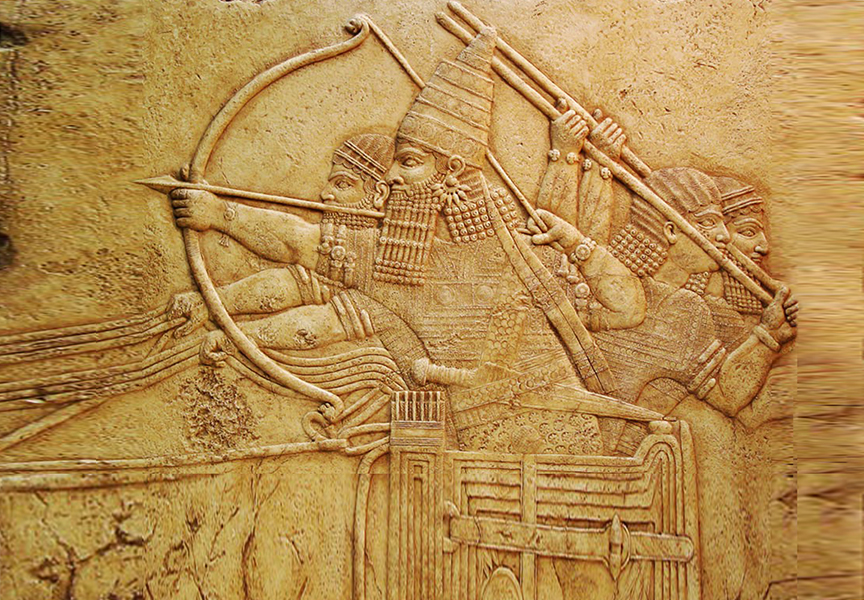
This week we’re talking about two very different empires in the same part of the world: the Iron Age Assyrians, also known as the Neo-Assyrians, and the Persians. Was the Neo-Assyrian empire really a failure? What went wrong, and why did it come apart so catastrophically?
Did the Neo-Assyrians and the Persians have anything in common apart from being empires? What do you think were the most important keys to the success of the Persian empire a century or so later?
Looking forward to discussing all this with you. See you Thursday!
Reminder: Essay #1 is due Thursday, Oct. 7
4 October
This is just a general note to all students to remind you that the Gilgamesh essay is due next week. It must be posted to BlackBoard no later than Thursday, October 7.
The requirements are on the Essays page. Please review them carefully. A link to a video going over key ideas and FAQs regarding the essay is also on the Essays tab. Remember also that your essay must conform to the Requirements for All Papers (see the Essay Musts tab).
For guidance on thesis statements, three-part structure, and citations, see the Writing an Interpretive Essays videos (1) and (2), posted in Weeks 3 and 4. See also the Elephant Pamphlet (a link is on the Resources page). Handouts on footnotes and bibliographies are also posted on the Essay Musts page. An MS Word template is available on the Resources page, which I strongly encourage you to use.
This is not a night-before kind of essay, so make sure you have blocked out the necessary time for research, writing, and review in addition to the weekly readings and video lectures.
Late submissions are accepted but are marked down one letter grade per class meeting, to a maximum reduction of 30 points.
Please email me with any questions or concerns at mark.wilson@lehman.cuny.edu.
Welcome to Week 5!
27 Septembner 2021
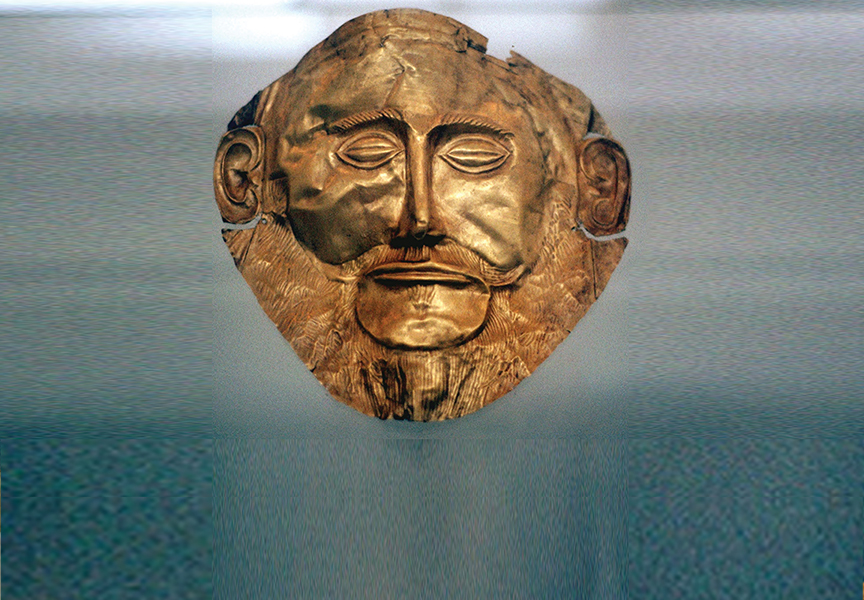
This week we’re talking about the Bronze Age Aegean: the indigenous inhabitants, especially the mysterious Minoans, and the invading Greeks, who swarm in from the north and take over the Aegean world before bringing about their own spectacular collapse, bringing down the whole Bronze Age with them.
There are a lot of things to talk about here. What strikes you as most intriguing about the Minoans—what we know of them? Why do you think the Mycenaean Greeks were so successful in surpassing them? If you were to talk about what was important to the Minoans and to the Mycenaean Greeks, what would be similar, and what would be distinctive? Were the Mycenaean Greeks their own worst enemy in too-greedily building a trade empire, or should we emphasize other factors in the great cataclysmic collapse of the Bronze Age and its civilizations?
We’re also talking about the dawn of the Iron Age, which we see first in Canaan—now that it’s not being warred over by the surrounding Bronze Age empires, the lands along the eastern shores of the Mediterranean are free to develop their own strength and economic reach. And they’re very characteristic of how the Iron Age differs from the Bronze Age. We’re focusing on three very distinct peoples who are rivals for land and independence in early Iron Age Canaan: the Phoenicians, the Philistines, and the Hebrews.
Why is the Iron Age so different, do you think? Why does a shift to iron matter so much? What do you think most sets apart a trade empire like that of the Phoenicians from the empires of the Bronze Age we discussed? What do you think are the biggest factors in the Hebrews being able to create their own state in Canaan despite huge disadvantages? How does religion factor into the story?
Looking forward to discussing all this with you on Thursday. See you then!
Quiz #1 grades and markups are posted
20 September 2021
Quiz #1 has been graded, and the grades posted.
If you took the quiz, next to your grade you should see a PDF icon. If you open this, you will see the marked-up version of your quiz, as if I were handing it back in class. Attached to this is a page of notes on the quiz questions. The notes are not the “correct answers” but a rundown of the ideas that came up in the lectures and readings that are relevant to the questions.
On the Week 4 page you can now also view a quiz recap video. This is very important as I use these to emphasize the most important ideas and take-aways from the previous week’s topic, much of which will continue to be relevant in future discussions and assignments.
The first quiz is always an adjustment as we get used to the process and the kinds of questions I ask. Here I just want to note that being specific and using examples are vital to giving strong answers on the quizzes. For this reason it’s important to be prepared by watching the videos, doing the readings, and participating in and reviewing the class discussion. The latter especially is where I try to shine a light of key concepts and transformations, which is also the kind of thing that crops up in the quizzes. For this reason I strongly advise you to always take the quiz AFTER participating in, and reviewing, the class discussion. (I also advise taking the quiz soon after, while all the material is still fresh and marinating in your mind.)
Any questions, let me know!
Welcome to Week 4!
20 September 2021
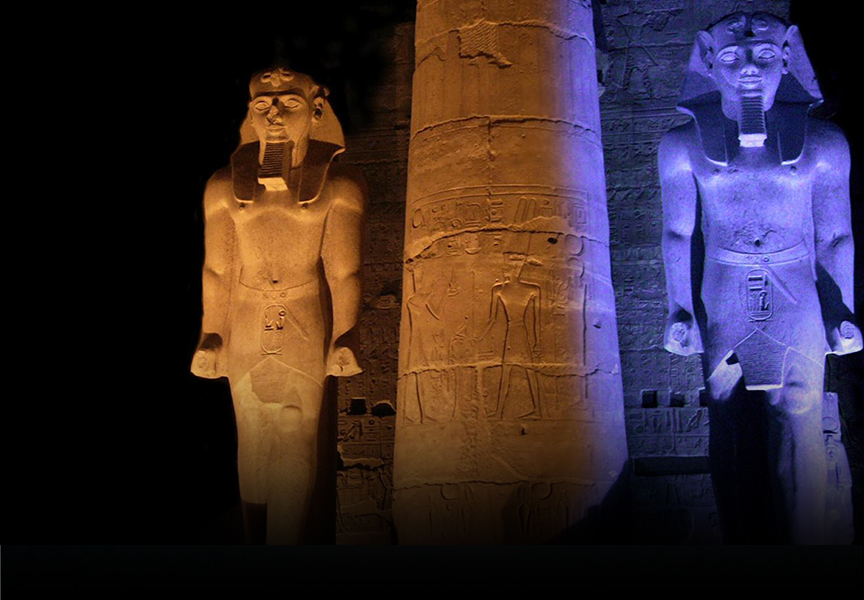
This week we’re talking about Egypt! This is a society that emerges around the same time as Sumer, and yet they could not be more different. Ancient Egypt has fascinated and perplexed students of history for thousands of years. What stands out the most to you about Egyptian society and culture? This is one of those rare cultures where absolute monarchy remains stable and effective for century on century. Why is that? What do you think makes the role of the pharaoh work without abuse of power? What do you think are the most important values and beliefs to an Egyptian? How does this affect the way they think about the gods? How does it affect how they think about death? How is Egypt during the New Kingdom different from the Old Kingdom?
It’s striking how different Sumer is from Egypt. What do you think goes into making them so opposite to each other? Egypt unified early. Why was it possible there, and not in Sumer, where the city-states remained fiercely independent? What’s most different about their views of the gods, of kings, of death?
This week we also read the last two assigned tablets of Gilgamesh. The most obvious question is, why does he fail in his quest? What is the author trying to get across when he talks about Utanapshtim on the edge of the world, and the tests Gilgamesh is subjected to? How is Gilgamesh changed at the end of the quest, and what do you think he sees when he calls the boatman’s attention to the walls of Uruk at the very end?
Looking forward to discussing all of this with you on Thursday. See you there!
No class meeting this week
13 September 2021
Just a reminder that there are no Thursday classes this week. See you next week for Week 4!
If you haven’t taken it, don’t forget there’s a quiz due on Wednesday. My advice is not to wait until the last minute, but either way you must take the quiz no later than Wednesday. The quizzes are a big part of your grade, and they are not made up.
Timing-wise, what happens with the quizzes is that Wednesday night at midnight I close out the quiz and disable the links. After that, there’s an overview video for each quiz where I talk about the key take-aways from the quiz—these are good for thinking back over the quizzes themselves, and they’re also good for exam and essay review as I use these to emphasize the things that I think are most important from the previous week’s topic. The quiz overviews are posted on the Week page for the week after the quiz, so in this case the Quiz #1 overview appears on the Week 4 page.
At some point after the quiz is closed I’ll grade the quizzes. The quiz grades and the mark-ups will be posted on the grading page within a day or two after the close of the quiz. I’ll let everyone know when the grades are up on the site.
Welcome to Week 3!
6 September 2021
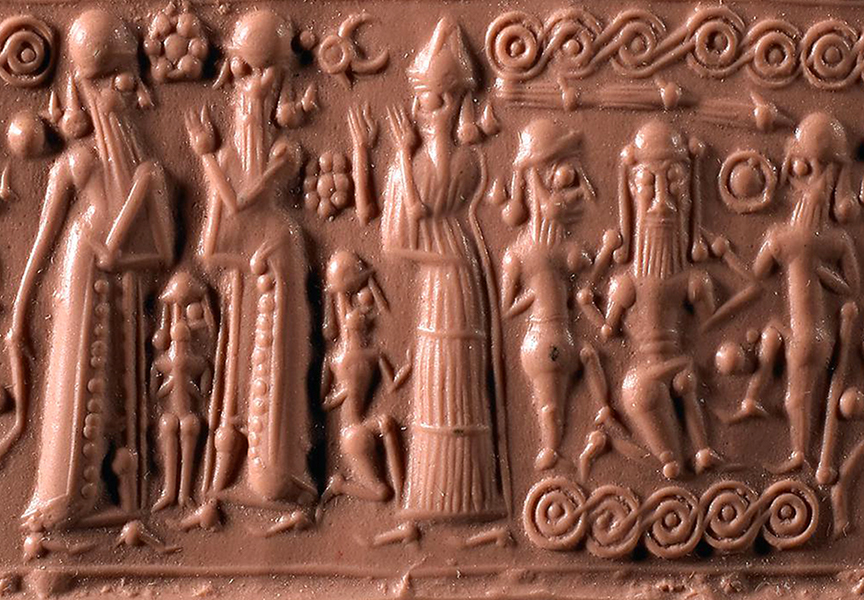
This week we’re talking about the civilizations of Mesopotamia, the land between the rivers: the original inhabitants in Sumer to the south, and the alien newcomers, the Semitic tribes that settle in Akkad, Babylon, and Assyria. They’re the strangers with their own languages and cultures who start to emulate, and, later, absorb the great cities and culture of the Sumerians.
In the discussion this week I want to talk about lots of things. One is how different the Sumerians and the Semitic peoples were—why did they build Sumer-style city-states, even down to the ziggurats for their own gods, and end up adopting Sumerian technology? Why do you think the Sumerians didn’t survive? When Sargon of Akkad built an empire, what was it based on, and why didn’t it last very long after he died? Why do you think so much significance is attached to the Code of Hammurabi?
This week we’re also looking at tablets 5 and 6 of Gilgamesh—the fights with Humbaba, the forest guardian, and the bull of heaven. What jumps out at you most from these two tablets? Why do Gilgamesh and Enkidu go on this quest? Is it just about glory, or is there more to it? What do you think is the symbolism in Gilgamesh and Enkidu attacking the guardian of the cedar forest? Note what happens to the cedar, too—what can we say about that? And what about the way Enkidu and Gilgamesh interact in these tablets? What’s that telling us about these two? Why do the gods agree to send the bull and to punish Enkidu, when they were the ones that created Enkidu in the first place?
Looking forward to discussing all of this with you. See you Thursday!
Textbook page numbers updated
1 September 2021
Because some of you are using e-versions of the textbook, for which page numbers are less useful than they are for print editions, I’ve reposted the reading assignments on the weekly pages so that they list the sections to be read by name as well as the page numbers.
The page numbers reference the e-text version of Mathisen’s Ancient Mediterranean Civilizations, 3rd edition. The page numbers may vary slightly if you’re looking at the print edition. If that’s the case, or if you have the second edition instead, go by the section names and read all of each section named, up to the next section title (all the section titles are in bold all-caps).
Remember, BEFORE the meetings on Thursday, you need to watch the videos AND do the readings on that week’s page. We can then use the meetings to discuss and interpret both according to what we each got out of them and saw as important, interesting, unexpected, alarming, fascinating, and other adjectives. :)
This week’s readings, for example, now look like the attached screen shot.
If you have any questions about any of the readings or videos, don’t hesitate to drop me an email. See you Thursday morning!
Welcome to Week 2!
30 August 2021
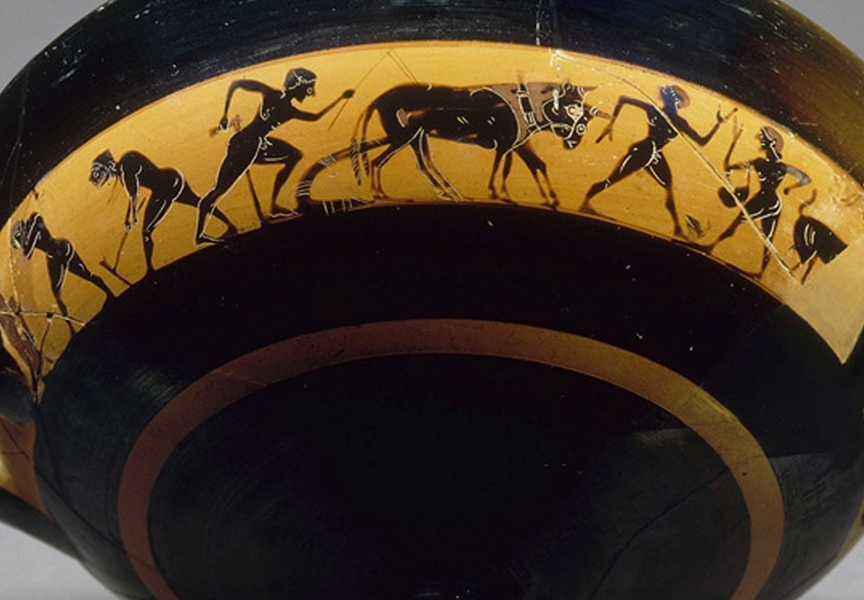
This week we’re talking about what’s involved in creating civilization. I think of civilization as a technology—something that’s a product of human ingenuity and that’s designed to produce a benefit. So, what are those benefits, and what’s the cost? Why do the ancients make this wrenching change? What strikes you as the most important ingredient into making a civilization?
We’re also reading the first two tablets of The Epic of Gilgamesh. (Make sure to read at least pages xiii-xvi and xxxi-xxxii of the introduction if you haven’t already—it really helps to have the background. And watch the video on the epic posted with this week’s video lectures.) What got your attention the most in these two tablets? There are a lot of questions we can talk about, but the biggest two are: What specifically does Gilgamesh do to anger the people—why do these two things make him a bad king? And, even more intriguing: why on Earth do the gods respond to the anguished prayers of the people about Gilgamesh by creating the beast-man Enkidu?
Looking forward to discussing all this with you on Thursday. See you there!
Welcome to Week 1!
23 August 2021
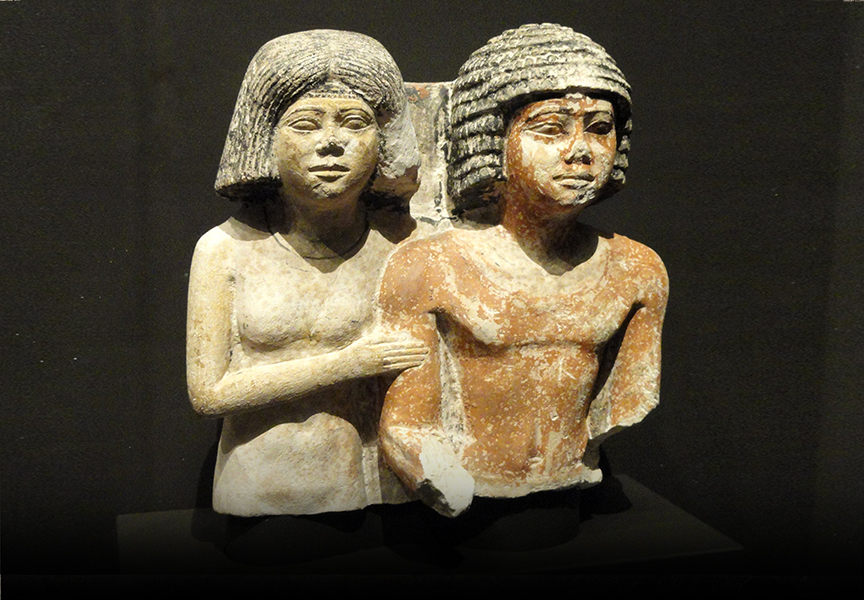
Good morning, and welcome to Week 1 of Civilizations of the Ancient World!
Before Thursday: We’re just starting out this week, and I know some of you might not have all the books yet. But the videos for this week are very important, as they set out the basics for ideas we’ll be returning to over and over again. Make sure you watch the Welcome video, because it contains stuff you really need to know. Any questions about how the course works, watch the Welcome video first—it answers most of them. If that doesn’t work, you send me an email anytime about anything related to the course.
On Thursday: Our regular meeting time is Thursday morning from 9:30 to 10:45. When we get together this week, it’ll be in the Week 1 discussion area, accessed at the bottom of the Week 1 page. I know we’re, again, just starting, but I’d love for everyone to post about what you’re hoping to explore, what cultures from the ancient world you find interesting or want to know more about, things about the ancient world you want to look into and understand better—that kind of thing. You can also talk about how other courses you’ve taken might impact on the stuff we’re talking about here. Make sure to read over the other students’ responses and respond to the ones you thought were interesting. Go back to the page later and see what was posted after you did. Posting is part of your grade, but it’s also how we can make sense of the stuff we’re exploring together.
Class meetings: Just to be clear, this course does not use Zoom, and we will be using BlackBoard only to upload our papers. We will instead be meeting every Thursday morning from 9:30 to 10:45 using a textual discussion area. I’ve been using this way of holding class meetings since the start of the pandemic and I’ve had really great discussions in all my classes. I’m looking forward to meeting all of you there on Thursday.
To get to it, go to the web page for this course on my website (it’s on markbwilson dot com; click on “courses” in the navigation strip and you’ll see this course there). Under “Schedule”, open up the “Week 1” page. That’s where the video lectures and readings for this week are. Before the class meeting on Thursday, watch the videos and do the readings. Then at 9:30 a.m. on Thursday, go ahead and enter the discussion area at the bottom of the Week 1 page, and join the rest of the class. That’s our class meeting space, and we’ll use the discussion area on each weekly page to talk about the readings, discuss our reactions, explore possibilities, and ask questions.
To be involved in the discussion, you will need a free Disqus account. Before the meeting, set up your account if necessary and test to make sure you can access Disqus on my site by using the “Test your Disqus login” button, which is also at the bottom of the Week 1 page.
Come to me with any questions! I try to make things as clear as I can, but I know that it takes a little acclimation. I want to help, so email me with any questions or issues. If any of you haven’t replied to my earlier emails letting me know I have the right address to reach you at, I’d be grateful if you did so now.
Looking forward to digging into the ancient world with you all. See you on the Week 1 page!
Office hours
18 August 2021
I’ve posted my (virtual) office hours, which are via email after class from 11 a.m. to 12 p.m. on Thursdays.
BlackBoard page available
2 August 2021
The BlackBoard page for this course is now live. Remember, we’re only using BlackBoard for uploading papers—everything else is here.
Site Map added
2 July 2021
I’ve added a Site Map page, offering you an overview of the full syllabus and easy access to any page in the course website. You can find it by clicking on the sign-post icon at the top right of every page. There’s also a link in the footer as well.
Welcome to Civilizations of the Ancient World (Fall 2021)
1 July 2021
Hi folks,
I’m looking forward to a great semester exploring the cultures and transformations of ancient societies, from “prehistory” to the rise of the Roman Empire.
For the Fall semester, the course will remain all online. But that doesn’t mean we can’t all come together and make sense of the crucial ideas, strangenesses, and commonalities that tell the story of how the ancients invented and evolved civilization, community, and the concept of empire.
Right now, I need you to do three things.
First, look over the course web page, which will be our base of operations starting at the end of August. Watch the quick welcome and orientation video. Look through each of the pages to see how the course will work, and make sure to click through to the weekly schedule pages to see how the readings, videos, and online discussions are set up. Any questions about how it works, please send me an email.
Second, get the books now if you can. A lot of you will be ordering books online, and you need to make sure you have the books and are ready to go when the course starts on August 26. On the “Books” page I’ve tried to give you lots of different options for getting what you need, but consider ordering now if there’s going to be any kind of shipping involved. (If you come across a legitimate online/e-text version of one of the assigned readings that’s not already listed, please let me know.)
Finally, please drop me an email so that I know I have a working email address for you. You can just reply, reply and say “hi”, or reply with a question or concern, but I want to make sure I can contact everyone (and my usual method of handing out cards to fill in on the first day obviously won’t work in this format). If you receive this email but there is an email address you prefer I use instead of this one, please definitely reply and tell me that.
Email me anytime with questions. I’m looking forward to starting our journey together.
Make sure you’re getting my emails
1 July 2021
If you haven’t been getting my emails, that means I don’t have a good email address for you (or they’re going into your junk folder). If this is the case, please email me and let me know what address I should use to reach you.